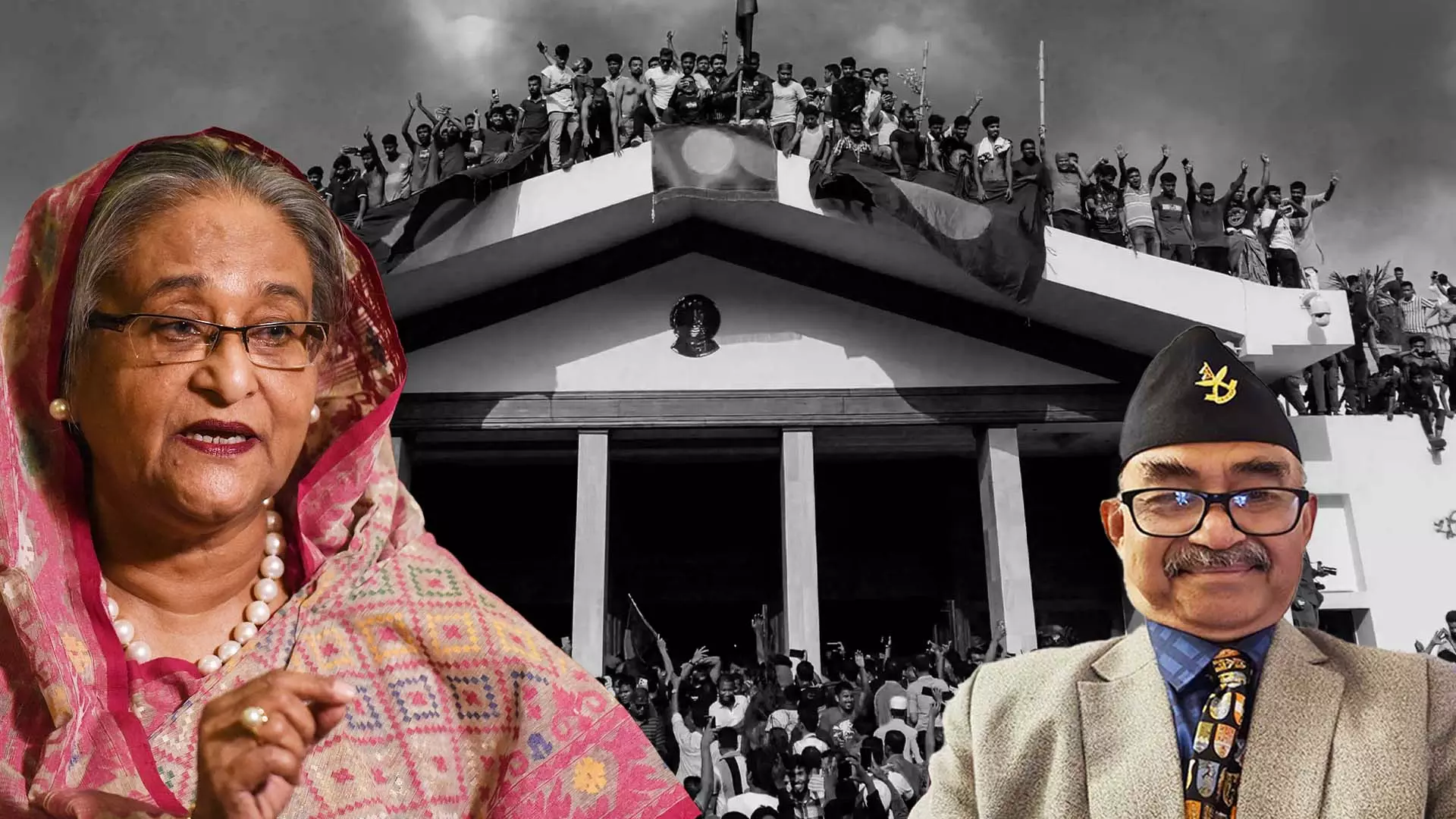
Bangladesh cannot put pressure on India directly, says Bhaumik
Sheikh Hasina's extradition: Why is India in a tricky situation?
Analyst Subir Bhaumik says India should not have offered her refuge when she initially fled

The Federal spoke to senior journalist Subir Bhaumik, a longtime Bangladesh correspondent for international media outlets, about the historic death sentence handed down to former Prime Minister Sheikh Hasina by Bangladesh’s International Crimes Tribunal. In this wide-ranging conversation, Bhaumik unpacks the implications of the verdict — especially for India, regional geopolitics, and internal stability in Bangladesh.
How serious is the pressure on India to extradite Sheikh Hasina to Bangladesh?
Subir Bhaumik says the calls are indeed loud, but India is caught in a difficult spot. He argues that if India now considers sending Hasina back, it will be perceived as bowing to pressure from Bangladesh’s current regime — led by Muhammad Yunus, who Bhaumik claims has been cozying up to Pakistan and Islamist radical groups since coming to power. He thinks India should not have offered her refuge when she initially fled, because “everyone knew this was coming”.
Is India’s close relationship with Hasina making this more complicated?
Absolutely — Bhaumik believes it is a double-edged sword. On one hand, India has historically backed Hasina and the centrist, Awami League. On the other hand, sending her back now could be seen as favouring a hostile regime that is warming to Pakistan and radical Islamists under Yunus’s government. Bhaumik argues that India has more leverage than Bangladesh — but also more to lose in terms of diplomatic credit.
Also Read: Hasina’s death sentence pushes Bangladesh to brink of civil war
Could Bangladesh actually pressure India in other ways?
Bhaumik doesn’t think Bangladesh can put pressure on India directly. He points to Yunus’s deep connections in Washington, suggesting Bangladesh hopes the U.S. will push India to extradite Hasina. However, he warns that Yunus is also courting Pakistan militarily, which could set up a proxy front against India.
Sheikh Hasina calls the trial a “witch-hunt”. Does Bhaumik see merit in that claim?
He concedes that she has a point. Bhaumik describes a deeply uneven legal environment: mobs stormed into her residence in the past, and he doubts she’d be safe if brought to Bangladesh. He also points out that her defense was not independent — the court-appointed defense team, he claims, was tied to the current government and the tribunal itself. Bhaumik notes that in the entire trial, not a single defense witness came forward, which he says reflects the chilling political climate. Moreover, he highlights the overcrowded prisons and political arrests of ruling-party opponents to argue that a fair trial was essentially impossible.
What does this verdict mean for the Awami League itself?
Bhaumik warns that the verdict — and the ban on the Awami League — may force the party into a corner. Historically, this is not a revolutionary or guerrilla party; it has relied on constitutional politics and elections. But with its leaders jailed and its ability to contest elections curtailed, Bhaumik suggests that the party may be driven toward street protests or even armed resistance — something it has long avoided.
Could this lead to armed conflict or civil war in Bangladesh?
He believes it’s a very real risk. Bhaumik highlights a worrying development: the government has created a “National Armed Reserve” of around 8,800 young people who are reportedly getting military-style training. He argues that these armed militiamen — many from Islamist groups — could be used against Awami League protestors, effectively acting as a parallel force under police cover. According to Bhaumik, if protests escalate, Awami League could be further marginalized or forced into more extreme means, potentially setting the stage for a broader conflict.
With elections reportedly scheduled soon, what’s next for Bangladesh politics?
Bhaumik is skeptical about the fairness of future polls if the Awami League remains excluded or suppressed. He argues that without the party that led Bangladesh to independence, there can be no truly inclusive or legitimate election. He worries that Yunus may use any unrest as justification to delay the vote under the pretext of restoring order — or even extend his grip on power by becoming president, which would also give him immunity from prosecution. That, Bhaumik warns, could entrench authoritarianism just as much as, if not more than, the situation before.
The content above has been transcribed using a fine-tuned AI model. To ensure accuracy, quality, and editorial integrity, we employ a Human-In-The-Loop (HITL) process. While AI assists in creating the initial draft, our experienced editorial team carefully reviews, edits, and refines the content before publication. At The Federal, we combine the efficiency of AI with the expertise of human editors to deliver reliable and insightful journalism.

